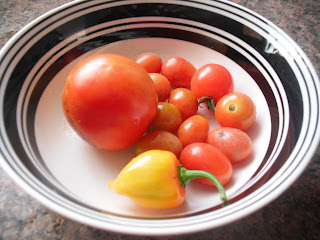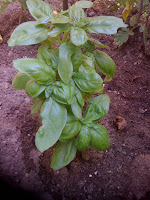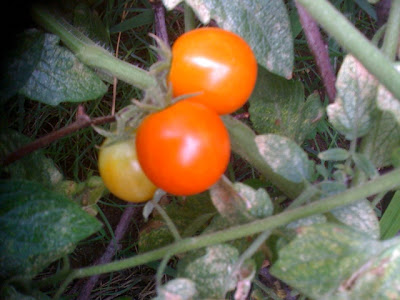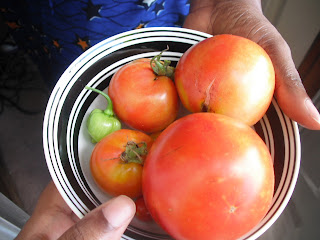I'm sad to say that the tomato garden is no more. Tomato plants are pretty sensitive to cold weather and they MUST have sunlight in order to survive, so I guess the few days we've already had of rain and cloud did away with the heirloom, cherry, and grape tomato plants. Here is a picture of my last summer tomato harvest.
 |
| Tomato harvest |
I had an excellent haul of tomatoes this year, and I definitely want to expand next year's crops and grow roma varieties too. Luckily my tomatoes did not contract any diseases, although a few of my tomatoes cracked a bit.
My peppers, on the other hand are still going strong! My habanero pepper plants are still doing well and some peppers are even starting to turn red-orange. I picked a few when they were still green, and they were already spicy, but I'm thinking leaving the peppers on the vine.
 |
| Habanero Pepper |
 |
| Bell pepper |
Gardening is a great experience and I am glad to share my stories with you. Leave your comments below!






